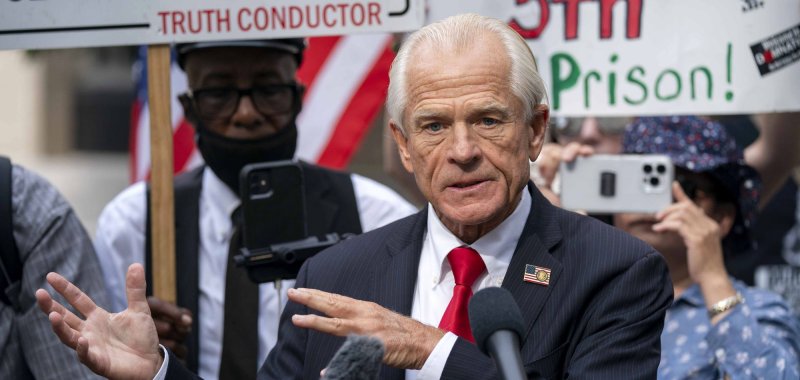In a significant ruling, a panel of federal appeals court judges has upheld the prison sentence of Peter Navarro, a former adviser to Donald Trump, for his conviction related to defying the Jan. 6 committee. The decision mandates Navarro to report to federal prison in Miami next week, rejecting his bid to delay his sentence. This ruling carries profound implications and raises pertinent questions about accountability, the rule of law, and the consequences of political allegiance.
Navarro’s involvement in Trump’s efforts to overturn the 2020 presidential election results placed him at the center of congressional scrutiny. When subpoenaed by the Jan. 6 committee, Navarro refused to comply, withholding testimony and documents crucial to the investigation. This defiance of congressional oversight underscores a broader pattern of obstructionism and disdain for democratic norms.
Federal prosecutors characterized Navarro’s actions as prioritizing political loyalty to Trump over the nation’s interests and the rule of law. This sentiment reflects a troubling trend observed in the aftermath of the Jan. 6 insurrection, where individuals placed partisan allegiance above constitutional principles, undermining the integrity of the democratic process.
The decision to uphold Navarro’s prison sentence sends a clear message about the consequences of obstructing congressional investigations and flouting legal obligations. It reaffirms the principle that no individual, regardless of their political affiliation or stature, is above the law. Moreover, it serves as a reminder of the importance of transparency, accountability, and respect for the institutions that uphold the rule of law.
Navarro’s case also highlights the broader challenges facing American democracy in an era marked by political polarization and partisan strife. The Jan. 6 insurrection exposed deep-seated divisions within society and the corrosive impact of disinformation and conspiracy theories on public discourse. Navarro’s defiance of congressional oversight represents a symptom of these underlying tensions, underscoring the urgent need for bipartisan efforts to strengthen democratic norms and institutions.
As Navarro faces the consequences of his actions, it is imperative to reflect on the broader implications for democracy and governance in the United States. His conviction serves as a cautionary tale about the dangers of political extremism and the erosion of democratic norms. Moving forward, it is incumbent upon elected officials, civil society, and the American public to uphold the principles of accountability, transparency, and the rule of law to safeguard the integrity of the democratic process.
The federal appeals court’s decision to uphold Peter Navarro’s prison sentence marks a significant moment in the ongoing effort to uphold the rule of law and accountability in American democracy. It underscores the importance of holding individuals accountable for their actions, regardless of their political affiliations, and sends a powerful message about the consequences of obstructing congressional investigations. As the nation grapples with the challenges posed by political polarization and democratic backsliding, Navarro’s case serves as a sobering reminder of the enduring need to defend and uphold the principles of democracy and the rule of law.
